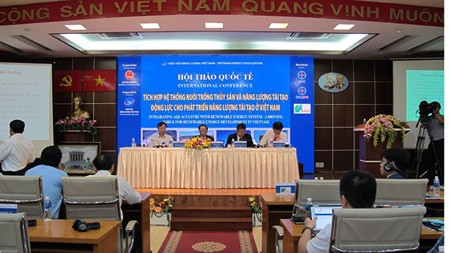
When evaluating the importance of energy in aquaculture, Mr. Nhu Van Can, representative of the Directorate of Fisheries under the Ministry of Agriculture and Rural Development, said that at the moment, the energy cost for raising prawn is around VND50 – 200 million per hectare per crop (around $2,196 – 8,785) depending on the investment scale. This accounts for 10 percent of the total expense cost.
Therefore, according to Deputy Director of the Southern Power Corporation (EVN SPC) Nguyen Phuoc Duc, renewable energy is a very effective solution to reduce the pressure of energy lack.
What is more, thanks to a surplus of sunshine and wind, aquaculture farms in the south-central areas are ideal places to install and make use of solar and windy energy in production.
However, according to Mr. Tran Viet Ngai, Head of the Vietnam Energy Association, the renewable energy in Vietnam has great potential, but due to the poor exploitation, it becomes quite ineffective, especially for the task of aquaculture production.
Analyses from his association estimate that Vietnam can harness about 30GW of wind energy inland and 100GW more offshore.
Vietnam can also produce an ideal amount of solar energy thanks to the long time of sunshine and the large surface area exposed to the sun from North to South. Nevertheless, until the end of 2016, this renewable energy accounted for less than 3 percent of the total 42,341MW of the whole electricity system.
Explanation of the Vietnam Electricity reveals that the low performance of renewable energy is because it is only developed locally. In addition, it is very difficult to have a synchronous growth of the electricity grid since the locations of the building projects are still unidentified.
The unstable capacity of this kind of energy may be due to the dependence on wind force or solar radiation.
However, the most important reason is that there is a serious lack of a specific standard system, construction standard system, or an operation standard system for renewable energy.
In order to effectively exploit this kind of energy, professionals suggested that the government should encourage its development, especially solar energy installed on roofs and wind energy in the Southern area.
It is also recommended that policies and regulations be made to attract investment while local authorities create conditions for the allocation of land for renewable energy projects and introduce tax incentives for those projects.
























